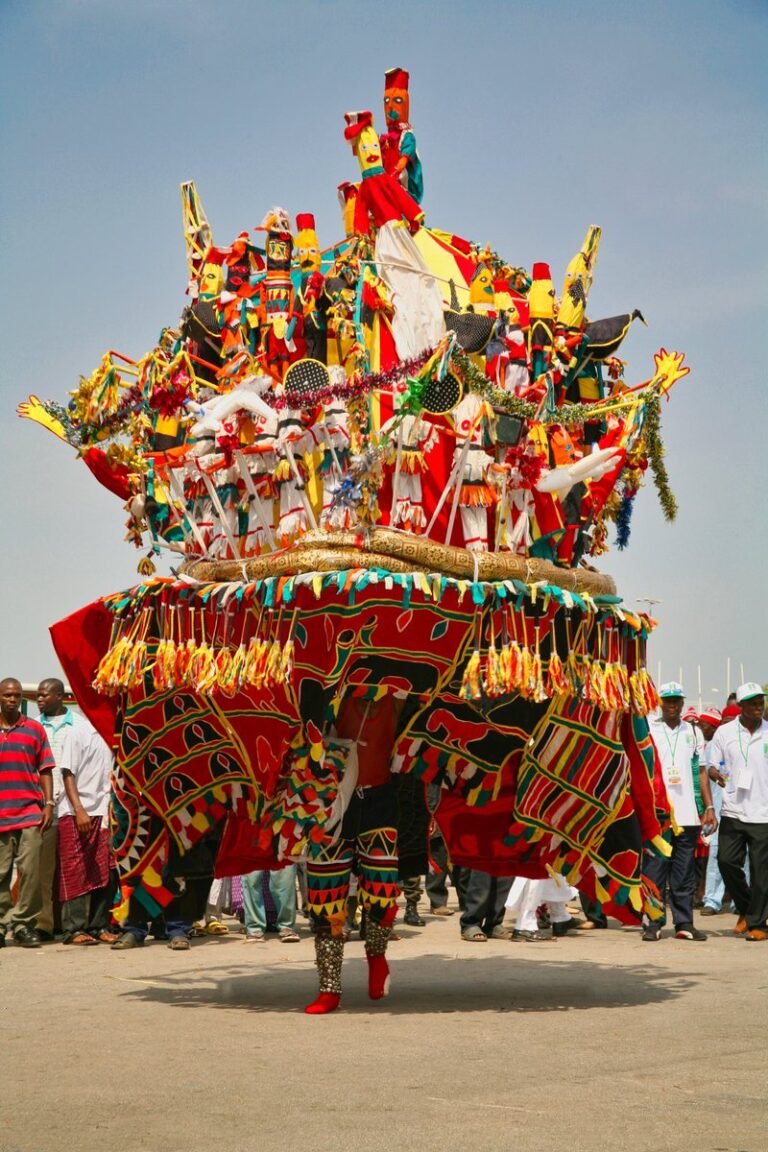What Are Anambra People Known For?
Anambra State, nestled in the southeastern region of Nigeria, is a treasure trove of culture, history, and entrepreneurial dynamism. The people of Anambra, primarily of Igbo descent, have long been celebrated for their rich cultural heritage, significant economic contributions, and remarkable achievements in various fields. This comprehensive exploration delves into the multifaceted identity of the Anambra people, providing historical context, drawing on credible sources, and incorporating insights from experts to paint a detailed picture of what makes this region and its inhabitants so notable.
Cultural Heritage and Traditions
Festivals and Celebrations
The cultural landscape of Anambra State is punctuated by vibrant festivals and traditional celebrations that showcase the rich heritage of the Igbo people. Among these, the Ofala Festival stands out as one of the most iconic. Held annually in various towns, including Onitsha and Nnewi, the Ofala Festival marks the Igwe’s (king’s) emergence from seclusion. This grand event features a parade of colorful masquerades, traditional music, and dances, drawing both locals and visitors in a celebration of royal heritage and community unity.
The Iri Ji (New Yam Festival) is another significant cultural event. Celebrated across Igbo land, the festival holds particular importance in Anambra. It symbolizes the end of the farming season and the beginning of the harvest. During this festival, the first yam is offered to the deities and ancestors in gratitude for a bountiful harvest. The Iri Ji festival is a vibrant display of dance, music, and masquerades, reflecting the agricultural roots and communal spirit of the Anambra people.
Arts and Craftsmanship
Anambra is renowned for its exceptional craftsmanship, particularly in bronze sculpture and pottery. The ancient town of Igbo-Ukwu is a testament to this artistic heritage. Excavations in Igbo-Ukwu have uncovered intricately designed bronze artifacts dating back to the 9th century, revealing the advanced metalworking skills and artistic sophistication of the early inhabitants. These artifacts are among the finest examples of early African metallurgy and continue to attract the interest of historians and archaeologists worldwide.
Pottery is another significant craft in Anambra. Towns like Inyi and Ogbunike are famous for their unique pottery techniques, which have been passed down through generations. The pots, often used for cooking and storage, are not only functional but also artistically adorned, reflecting the creativity and skill of the artisans.
Educational Achievements
Institutions of Learning
Education is a cornerstone of Anambra’s societal values. The state is home to some of Nigeria’s most prestigious educational institutions. Nnamdi Azikiwe University, named after Nigeria’s first President and an illustrious son of Anambra, is a beacon of academic excellence. The university offers a wide range of programs and has produced numerous graduates who have excelled in various fields globally.
Secondary education is also highly esteemed in Anambra. Schools such as Christ the King College (CKC) in Onitsha and Dennis Memorial Grammar School (DMGS) in Onitsha have a long history of academic excellence and have produced notable alumni who have contributed significantly to society.
Notable Figures in Academia
Anambra has produced a plethora of distinguished scholars and intellectuals who have made significant contributions to various academic fields. One such figure is Professor Chinua Achebe, an Anambra native and one of Africa’s most celebrated writers. His seminal work, “Things Fall Apart,” is a cornerstone of African literature, offering a profound exploration of pre-colonial African society and the impacts of colonialism.
Another notable academic is Professor Chike Obi, a mathematician and one of Nigeria’s foremost scholars. He made groundbreaking contributions to the field of differential equations and was the first Nigerian to earn a doctorate in mathematics. His work has had a lasting impact on the academic community, both in Nigeria and internationally.
Economic Contributions
Entrepreneurial Spirit
The entrepreneurial spirit of the Anambra people is legendary. Anambra State is a significant economic hub, with cities like Onitsha and Nnewi at the forefront. Onitsha, often dubbed the “Commercial Nerve Center of Nigeria,” hosts one of the largest markets in West Africa. This sprawling market is a bustling center of trade and commerce, attracting traders from all over Nigeria and beyond.
Nnewi, known as the “Japan of Africa,” is another economic powerhouse. It is renowned for its industrial prowess, particularly in automobile parts manufacturing and distribution. Companies like Innoson Vehicle Manufacturing, Nigeria’s first indigenous car manufacturer, have their roots in Nnewi, showcasing the innovative and industrious nature of the Anambra people.
Prominent Business Figures
Anambra has produced numerous business magnates who have made significant contributions to Nigeria’s economy. Sir Louis Odumegwu Ojukwu, one of Africa’s wealthiest men in the 20th century, was a pioneering entrepreneur from Anambra. He played a crucial role in the development of Nigeria’s transport and logistics industry, founding the Nigerian Stock Exchange and other significant ventures.
In contemporary times, figures like Chief Cletus Ibeto and Dr. Cosmas Maduka continue this legacy. Chief Cletus Ibeto, founder of the Ibeto Group, has built a diversified conglomerate with interests in cement production, automotive parts, and energy. Dr. Cosmas Maduka, founder of Coscharis Group, is another illustrious businessman whose company is a leading player in the automobile industry in Nigeria.
Political Influence
Historical Political Figures
Anambra State has a rich political history and has produced several influential political leaders. Dr. Nnamdi Azikiwe, an Anambra native, was a pivotal figure in Nigeria’s struggle for independence and served as the country’s first President. Known as the “Zik of Africa,” his contributions to Nigeria’s political landscape are immeasurable, and his legacy continues to inspire generations.
Dr. Alex Ekwueme, another prominent political figure from Anambra, served as Nigeria’s first elected Vice President. He played a key role in the return to civilian rule and was a champion of democratic values and governance. His efforts in advocating for national unity and development are well remembered.
Contemporary Political Leaders
In recent times, Anambra has continued to produce notable political leaders who have made significant impacts on both state and national levels. Mr. Peter Obi, former Governor of Anambra State, is widely acclaimed for his fiscal prudence and developmental strides during his tenure. His administration focused on improving education, healthcare, and infrastructure, setting a standard for good governance.
Senator Ben Obi, another influential figure, has also played a significant role in Nigeria’s political scene, particularly in legislative matters and policy advocacy. These leaders exemplify the continued political relevance and influence of Anambra State in Nigeria’s governance.
Unique Characteristics
Industriousness and Resilience
The Anambra people are known for their industriousness and resilience. This trait is evident in their entrepreneurial endeavors, educational pursuits, and cultural preservation. The Igbo saying “Aku ruo ulo,” meaning “Wealth should reach home,” encapsulates the communal spirit of the Anambra people, emphasizing the importance of sharing success with one’s community. This ethos fosters a supportive environment that encourages both individual and collective growth.
Strong Sense of Community
Anambra’s strong sense of community is a defining characteristic. This communal bond is reinforced through various cultural practices and social structures. The town unions and age-grade systems play crucial roles in community development, social cohesion, and conflict resolution. These traditional systems ensure that community members support one another and work collectively towards common goals.
Cultural Preservation
Despite modern influences, the Anambra people have maintained a strong connection to their cultural heritage. Traditional dances, music, and rituals are still practiced and celebrated, preserving the rich history and identity of the Igbo people. Initiatives to document and promote Igbo language and traditions further highlight the commitment of the Anambra people to preserving their cultural legacy.
Insights from Experts
Economic Insights
Dr. Emma Okoye, an economist and professor at Nnamdi Azikiwe University, emphasizes the economic dynamism of Anambra: “The entrepreneurial spirit of Anambra people is not just about individual success; it’s deeply rooted in the community’s collective advancement. This unique characteristic drives the state’s economic dynamism, making it a significant player in Nigeria’s economy.”
Cultural Perspectives
Cultural anthropologist Dr. Ifeoma Nwankwo highlights the significance of Anambra’s festivals: “The Ofala Festival is not merely a celebration; it is a reaffirmation of the people’s identity and cultural continuity. It binds the community together and preserves the rich heritage of the Igbo people. These festivals are crucial in maintaining the social fabric and cultural identity of the Anambra people.”
Historical Context
Historian Professor John Nwosu provides insights into the historical significance of Anambra: “Anambra has always been a center of cultural and economic activity. The ancient artifacts from Igbo-Ukwu demonstrate a long history of advanced civilization and trade. Understanding this historical context is essential in appreciating the modern achievements of the Anambra people.”
Conclusion
Finally, What Are Anambra People Known For? The people of Anambra State are distinguished by their rich cultural heritage, educational excellence, entrepreneurial achievements, and significant contributions to Nigeria’s political and economic landscape. Their unique characteristics and achievements make Anambra a state of great interest and admiration. By understanding the multifaceted identity of Anambra people, one gains a deeper appreciation for their role in shaping Nigeria’s history and future.
The legacy of the Anambra people is a testament to their resilience, creativity, and enduring spirit. From their vibrant festivals and sophisticated craftsmanship to their educational accomplishments and entrepreneurial successes, the Anambra people continue to make significant strides in various fields. As they uphold their rich cultural traditions and embrace modern advancements, the Anambra people remain a shining example of what can be achieved through determination, community support, and a commitment to excellence.
In exploring the essence of Anambra, one cannot overlook the impact of its people on the broader Nigerian and African context. The blend of traditional values and modern achievements creates a unique narrative that is both inspiring and instructive. As we delve deeper into the story of Anambra, we uncover not just a state, but a vibrant community that exemplifies the best of human endeavor and cultural richness.
Through their contributions to education, economy, politics, and culture, the Anambra people have carved a niche for themselves, setting standards for others to follow. Their story is one of resilience, innovation, and a deep-rooted sense of identity and community. This narrative continues to evolve, promising even greater achievements in the future and reinforcing the enduring legacy of the Anambra people.

